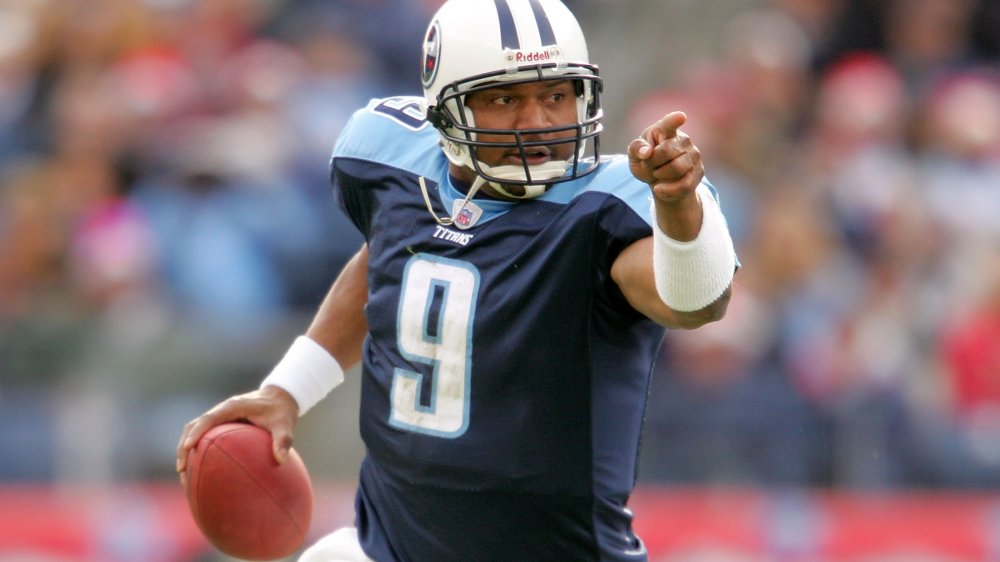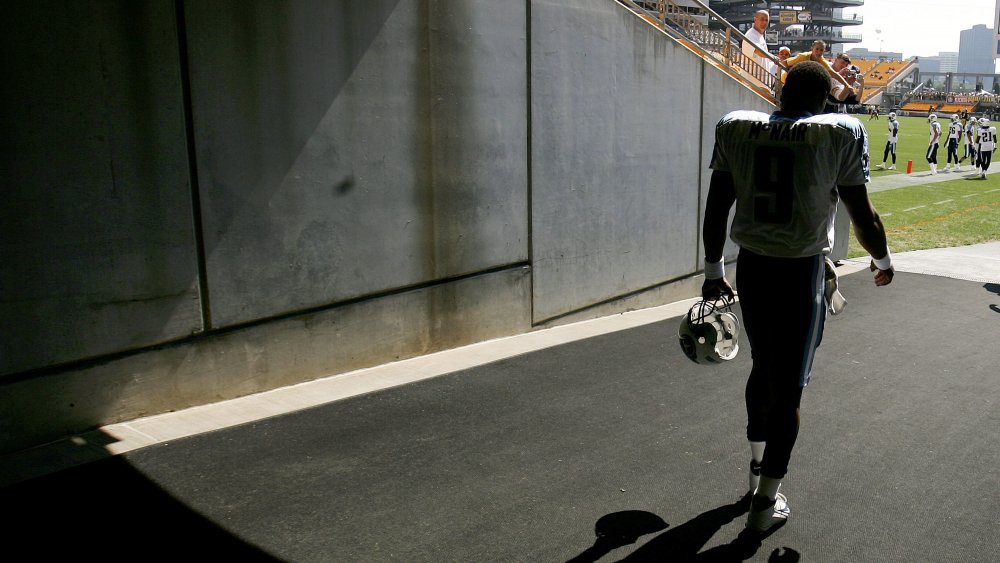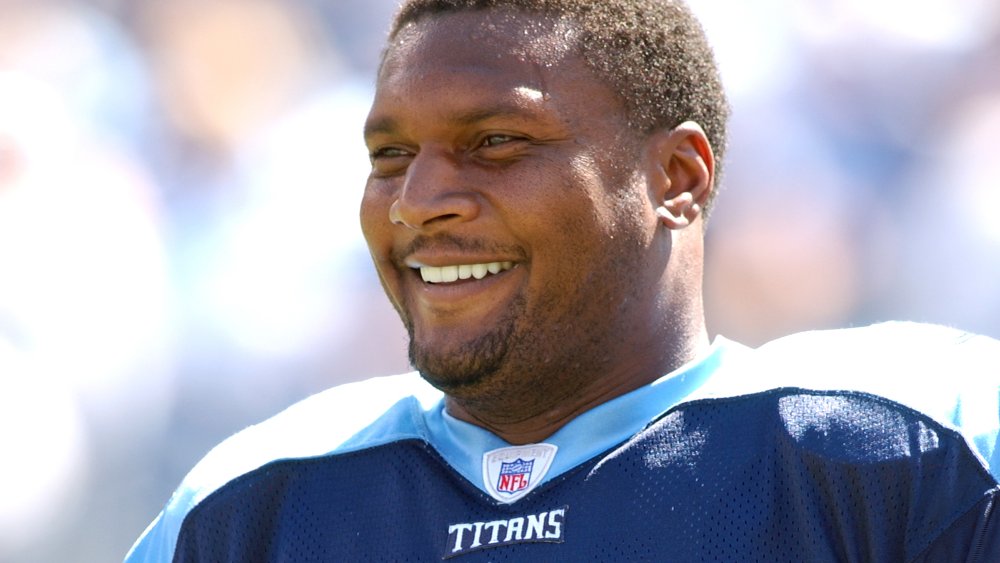The Tragic Death Of Former NFL MVP Steve McNair
More and more research and attention are being directed toward the scourge of CTE — chronic traumatic encephalopathy, the condition caused by repeated head injuries over time, often found to be the cause of death of many former professional football players. The death of ex-San Diego Charger Junior Seau, for example, was due to the memory loss, dementia, and crippling depression caused by the CTE researchers found when they studied his brain after his death. But one former ex-NFL star perhaps you didn't know was dead – 2004 co-MVP Steve McNair (shared with Peyton Manning in what ESPN called "a rare tie") — lost his life to a problem with quite a bit more history than CTE: jealousy.
The Guardian described the football player's tragic untimely demise as "a very modern love story." McNair was found dead in his apartment in Nashville, Tennessee, on July 4, 2009. The body of a young woman nearly half his age — his mistress, Sahel Kazemi — was found along with him. Police believed she shot McNair in the temple while he was asleep on the couch, then shot him three more times. She then sat next to him and shot herself, planning to fall into his lap, but ending up on the floor. Investigators deduced that she most likely felt her life spiraling out of control, as McNair was reluctant to leave his wife for her, and she suspected a third woman to be involved, as well.
McNair was leading a double life at the time of his death
According to The Nashville Tennesseean, McNair's death and the drama behind it came as quite a shock to those close to him. As reporter Erik Bacharach wrote, "What you saw was what you got. A family man. A faithful man. A community-oriented and generous leader of a man." But the murder-suicide that ended his life revealed a different side of the former MVP, "one that was more susceptible to temptation."
McNair's running back Eddie George told CNN that the former quarterback struggled to fill a void that opened up within him after he left the NFL. "What people fail to realize is that when you make a transition away from the game — emotionally, physically, mentally, spiritually — you go through something. You change, and you're constantly searching for something," he said, adding that the situation was in no way unique to McNair. "I just know from experience that when you're used to doing something for so long that you love to do — how do you fill that void? You're in search of something. Most players may go back to things they used to know. They may revert back to drugs, divorce rates go up, obesity. You're looking for something comforting." Still, he and others hope that McNair's legacy will ultimately be about the game and the good he did with his life. "I'm hoping that people can look beyond the circumstances surrounding his death," George said.
Friends and colleagues remember Steve McNair's legacy
The Tennessean remembered several of McNair's efforts to better his community, such as the restaurant called Gridiron9, designed to provide affordable meals to students at Tennessee State University. He founded the Steve McNair foundation in 2001 in order to support local youth charities. According to the foundation's website, it was "dedicated to serving under-privileged children through programs that focus on inspiring and empowering today's youth." It also provided financial support to organizations that "promote self-esteem, self-confidence and self-worth among children." Rather than letting his fame turn him into a sports diva, McNair preferred to use it to help young people going through the things he knew were troubling them. "No worthwhile cause is too big or too small for the Steve McNair Foundation being involved with," he was quoted as saying.
Sports anchor and friend Mitchel Williams remembered the summer camps that McNair hosted, back before it was cool to do so. "When Steve started holding his camps, nobody else was doing a whole lot of them. He helped start that trend." Williams said that around 11,000 kids learned to play football through McNair's summer camps, "and all of them for free." Despite the dark side that he tried to keep hidden, and that ultimately took his life, Steve McNair will ultimately be remembered for the positive effects his presence had on others, both on and off the field.


